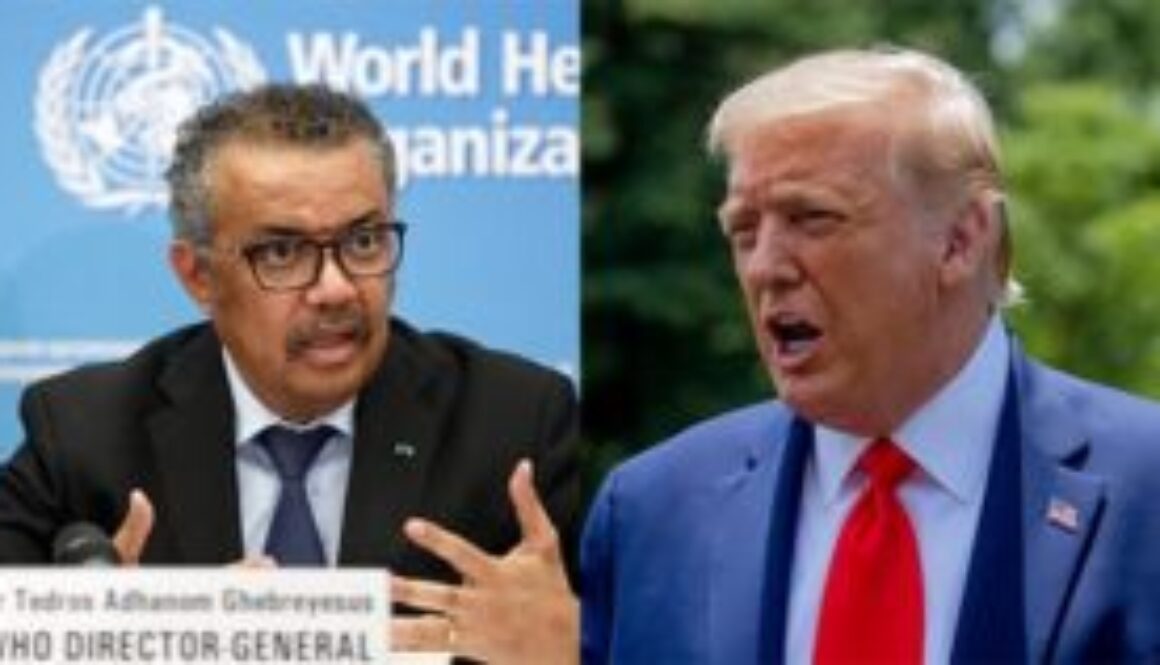How U.S. Withdrawal from WHO Could Impact Forex and Stock Markets.
Breaking news: Speculation about the U.S. potentially withdrawing from the World Health Organization (WHO) is sparking debates worldwide. This move, if confirmed, would have significant implications for forex trading and stock markets, as global investors evaluate its potential economic and geopolitical effects.
Below, we explore how this development could impact currency markets, stock indices, and specific sectors.
Forex Market Impacts: Volatility Ahead
1. U.S. Dollar Volatility
The U.S. dollar (USD) could face heightened volatility as investors react to the policy shift. Historically, geopolitical uncertainty weakens the dollar against safe-haven currencies like the Japanese yen (JPY) and Swiss franc (CHF). However, if the withdrawal is seen as an effort to redirect resources to U.S. domestic programs, it might bolster USD strength in the long term.
2. Risk Sentiment in Forex Markets
Emerging market currencies, such as the Mexican peso (MXN) or South African rand (ZAR), could weaken in a risk-off environment. Similarly, risk-on currencies like the Australian dollar (AUD) or New Zealand dollar (NZD) might experience pressure if global trade and cooperation appear threatened.
Top Keywords for Forex Traders to Monitor
• U.S. dollar (USD)
• Japanese yen (JPY)
• Emerging market currencies
• Forex market volatility
• Safe-haven currencies
Stock Market Impacts: Sector Winners and Losers
1. Healthcare Sector in the Spotlight
Stocks tied to healthcare and pharmaceuticals, particularly those collaborating with WHO, could face headwinds. Conversely, U.S.-based healthcare companies might rally if federal funding is redirected to domestic initiatives. This creates opportunities for investors to capitalize on sector rotation.
2. Broader Market Risk
Major U.S. stock indices like the S&P 500 and Dow Jones Industrial Average could come under pressure as investors process the implications for global stability. Defensive sectors like utilities and consumer staples may gain traction as traders shift to safer investments.
High-Impact Keywords for Stock Traders
• Healthcare stocks
• S&P 500
• Dow Jones Industrial Average
• Defensive sectors
• Stock market risk
Fundamental Analysis: The Bigger Picture
For forex and stock traders, understanding the broader economic implications is essential. A U.S. withdrawal from WHO could signal growing isolationism, potentially disrupting global supply chains and trade relationships. This uncertainty might prompt central banks, including the Federal Reserve, to delay rate hikes or adopt more dovish monetary policies, further influencing the forex market.
Key Economic Indicators to Watch
• Federal Reserve policy changes
• Global trade relationships
• U.S. healthcare investments
• Emerging market performance
Actionable Insights for Traders
Forex Traders:
• Watch for USD volatility against safe-haven currencies like JPY and CHF.
• Monitor high-risk pairs, including USD/MXN and USD/ZAR, for short-term opportunities.
Stock Investors:
• Focus on healthcare and biotech stocks, as well as defensive sectors like utilities.
• Keep an eye on major indices like the S&P 500 for signs of market sentiment shifts.
General Tips:
• Stay updated on breaking geopolitical news and its impact on global markets.
• Use technical and fundamental analysis to refine your trading strategies.
Conclusion: Navigating Market Uncertainty
While the potential U.S. withdrawal from WHO presents challenges, it also creates opportunities for savvy traders and investors. By staying informed and monitoring key sectors and currency pairs, you can navigate this period of market uncertainty with confidence.
FAQs
1. How will this affect the U.S. dollar in forex trading?
The USD could experience volatility, particularly against safe-haven currencies like JPY and CHF.
2. What sectors should stock investors focus on?
Healthcare, biotech, and defensive sectors like utilities may see significant movement.
3. How can traders manage risk during geopolitical uncertainty?
Use stop-loss orders, diversify portfolios, and monitor key economic indicators like interest rates and global trade trends.

